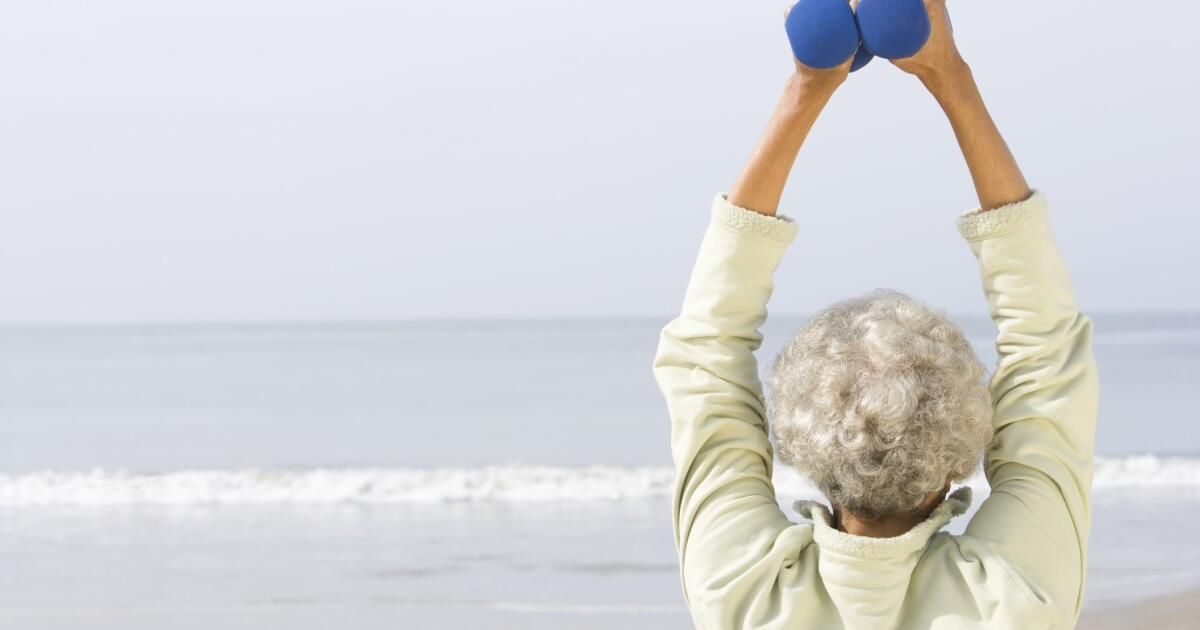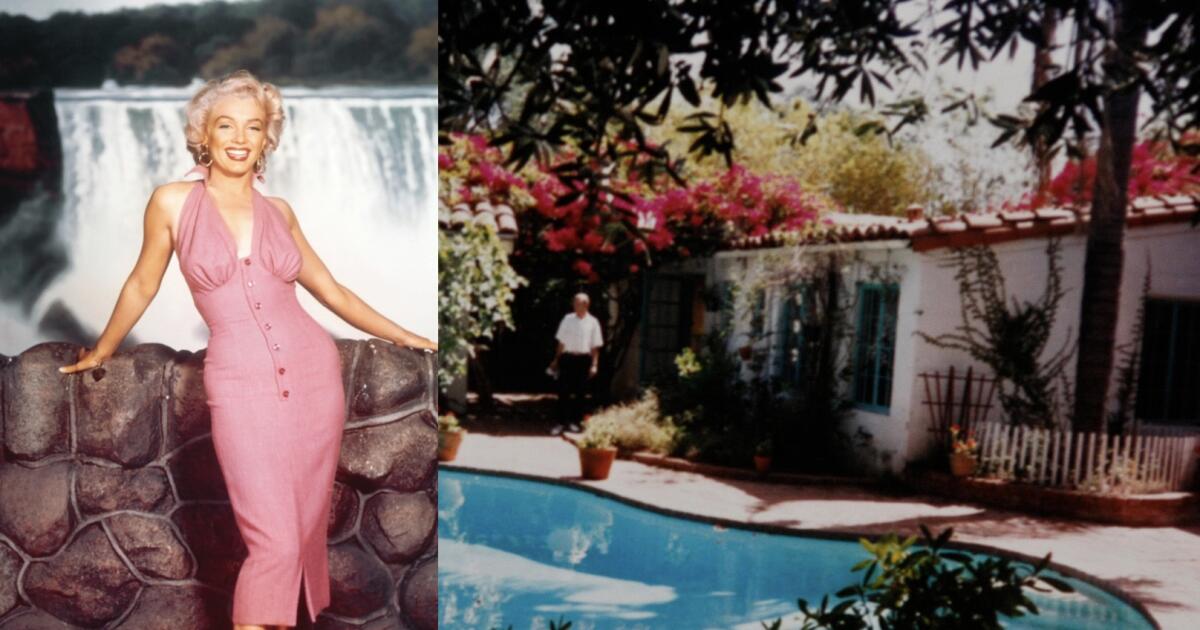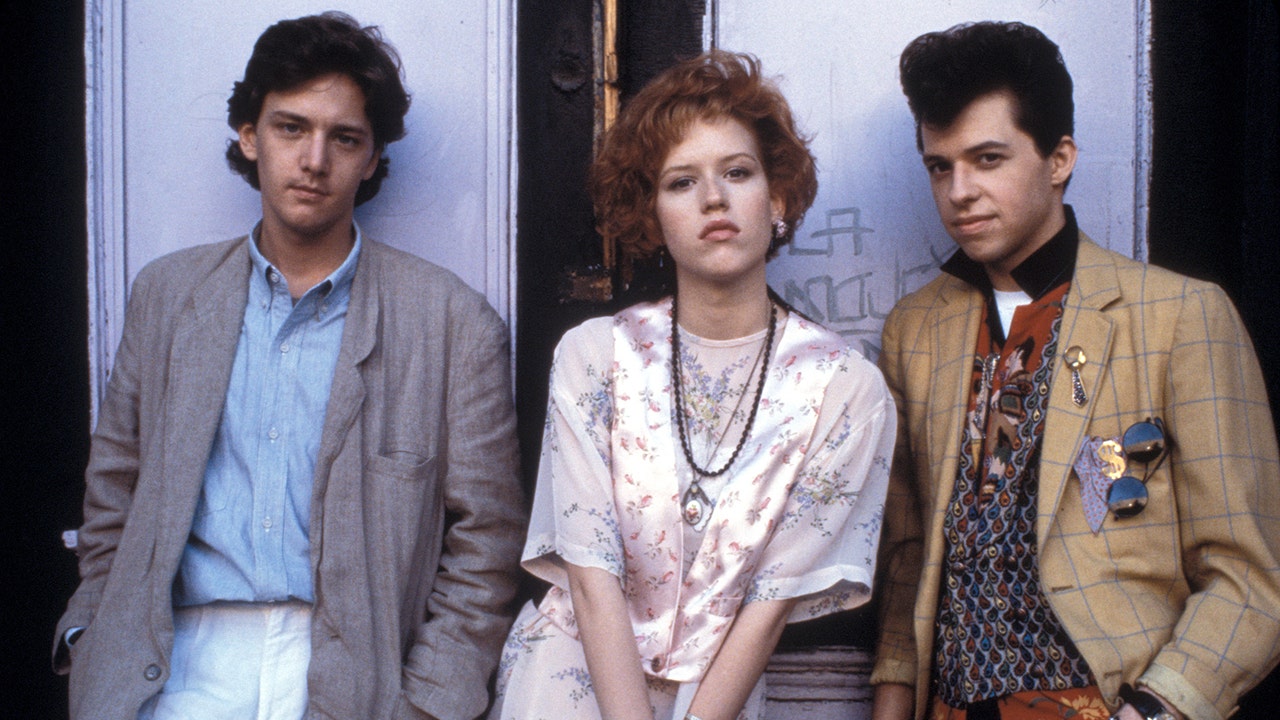Philly, my 1-year-old beagle, keeps stealing socks, tries to eat horse manure on our morning walks, and can be as stubborn as a heat dome in the summer. But I'm glad this is the dog I chose to adopt six months ago and I owe it all to the well of wisdom that deepens as you get older.
The bloodhound I really wanted was a newborn puppy, but when I went to sign the papers, he peed on the floor, ran across the puddle, and splashed in my lap.
When I was younger, I would have thrown caution to the wind and brought it home, threatening my marriage and my carpet. But like a mature adult who looked like he just peed his pants, I stopped the adoption process and then found Philly, who was older than the first dog and was more or less house trained.
I tell you this because there is a lot of grim news to report when you're getting older, and I've done a lot of it. But getting older isn't all bad. You have a lifetime of dumb decisions and deep regrets to learn from, and you keep getting smarter.
Common sense is not the only benefit of getting older. Just the other day I asked my wife if she had any thoughts on the subject and two things instantly occurred to her. As you get older, Alison said, you care less about what other people think of you.
I could not agree more.
And number 2, Alison said, you get over the fear of missing out, which some people apparently refer to as FOMO.
It's also true, but enough of the acronyms. And I can say that about FOMO because speaking your mind is another BOGO (benefit of getting older).
I must confess, by the way, that I flat-out stole the idea for this column, relying on Oscar Wilde's excuse that “imitation is the sincerest form of flattery.” The Longevity Project publishes a very entertaining weekly newsletter called “Three Not So Bad Things About Aging and Longevity,” a collection of snippets about medical advances, personal achievements, and more.
A couple of examples:
The newsletter linked to a Harvard School of Public Health study which looked at happiness and life satisfaction, meaning and purpose, and close social relationships. The results? As the newsletter said: “The older you are, the better off you are, often by quite a bit.”
In another installment it was reported that “living to age 100 is increasingly common (by mid-century, the United Nations projects that there will be 3.7 million centenarians alive worldwide) and the idea of a healthy and active centenarian It is becoming more and more common. increasingly normalized.”
Like much of this news, there's a flip side to the growing ranks of the century club: Social Security checks may bounce and the number of irritating pharmaceutical ads on television may triple. But the Longevity Project, established five years ago in conjunction with the Stanford Longevity Center, aims to highlight research and spark conversations that explore all the challenges and opportunities related to aging.
As for the newsletter, which launched 18 months ago, Longevity Project founder Ken Stern told me the idea was to educate and entertain, and maybe even inspire.
“The stories that are funniest are the ones about people who do interesting things in the second and third chapters,” Stern said. Especially when they've found meaningful things to do, instead of sitting around watching their toenails turn yellow.
Stern cited, as an example, the story of a retiree named Randy Yamada, the 70-year-old, often shirtless, unofficial mayor of the community of Royal Kunia, Hawaii, northwest of Honolulu. Yamada spends his days taking care of his neighbors, watering their gardens, and fixing what's broken.
“It may not seem entirely fair—these people may live in Kunia and have their own neighborhood concierge—but it's a good deal overall,” the newsletter observed. “Great for the neighbors, wonderful for the spirit of the neighborhood and good for the mayor,” who told Island News that “taking care of your neighborhood helps it age well.”
One of the reasons I am drawn to the newsletter is that my own mailbag is full of examples of “not so bad things” about aging. For example, isolation has been called a public health epidemic among older adults, but I'll soon be meeting with Los Angeles Rabbi Laura Geller, who emailed me about the solution she's been working on. She has established what a growing national movement knows as “virtual villages,” in which older adults link up to care for each other and find purpose in community causes.
Geller launched ChaivillageLA, which brings together members of Temple Isaiah and Temple Emanuel, and is using the same model to link seniors in the San Fernando Valley and in New York. There are several dozen such collaboratives in California, and you can find one in your region at VillageMovementCalifornia.org.
Another not-so-bad thing about aging is that birthday parties get better. This could be because the younger members of the family fear that each of them will be the last, but that's not so bad, even if you don't have the lung capacity to blow out all those candles.
Carlos E. Cortés, professor emeritus of history at UC Riverside, wrote to tell me that he had just turned 90, still teaches part-time, and takes a three-mile walk six days a week. He also submitted a column he had written for American Diversity Report about his 90th party.
“The older I get, the more I hate celebrating my birthday,” Cortés wrote, saying she had resisted her daughter's efforts to throw her a party. She insisted, and the result was a year of planning an epic celebration that included a book and a movie about her life.
“Family has always been important to me. But it never meant more than during those glorious 366 days (with a leap year) of my 89th year, highlighted by some of the best conversations with family and friends I have had in years,” Cortés wrote in his column. “So save the date, April 6, 2034, when I turn 100.”
And here's one last glimpse of not-so-bad things. He comes from actor Dirk Blocker (“Brooklyn Nine-Nine,” etc.), whose father, Dan, played Hoss on “Bonanza.” Blocker had emailed me about my column about the many adventures in the life of Morrie Markoff (machinist, appliance repairman, photographer, sculptor, author) and his eventual death at age 110, and I asked him if he had any optimistic thoughts. about aging.
The blocker sent three.
First, softening: “Like a shedding of skin, perceptions of certainty and control have given way to a decrease in stress and increased my capacities for patience, empathy and understanding.”
Second, it's never too late: “I have time… for things I once considered luxuries… I'm playing the guitar and my fear of singing in public seems to have disappeared, as if who cares what other people think ”.
Thirdly, you deserve it, so why not? “Naps. A simple but immensely satisfying restorative indulgence after lunch to which I gladly succumb.”
I like all three.
And now here's a task for the rest of you:
Send me one or two pretty good things about aging, plus discounts for seniors.
Make it three and you can take a nap.












